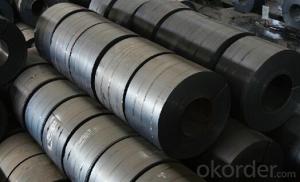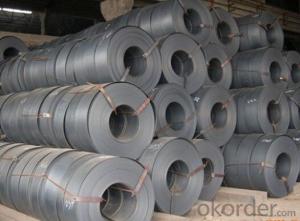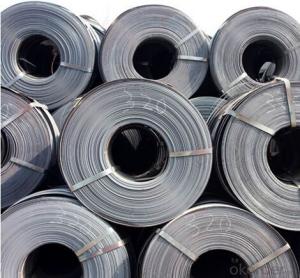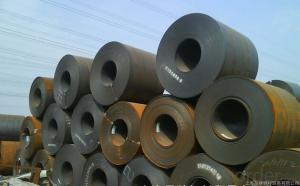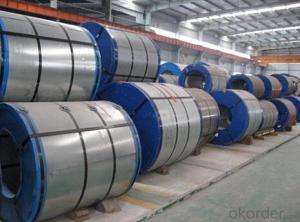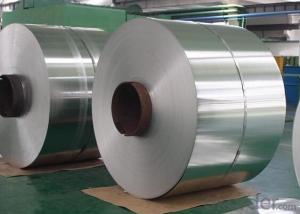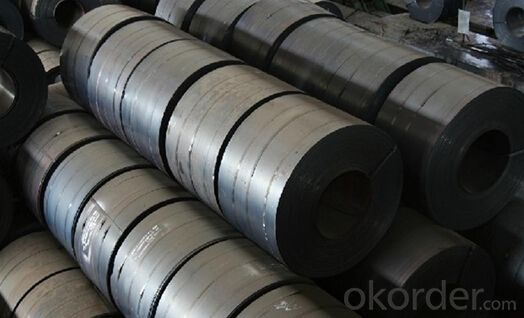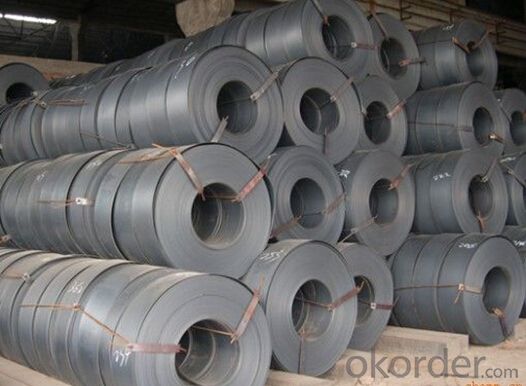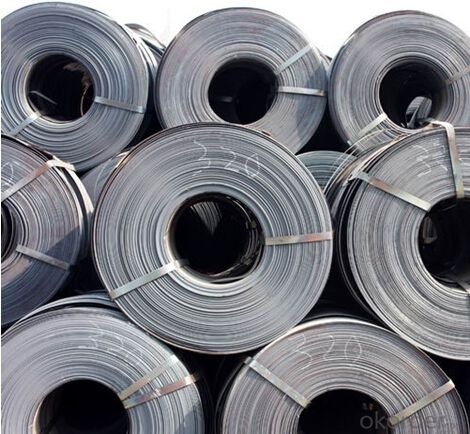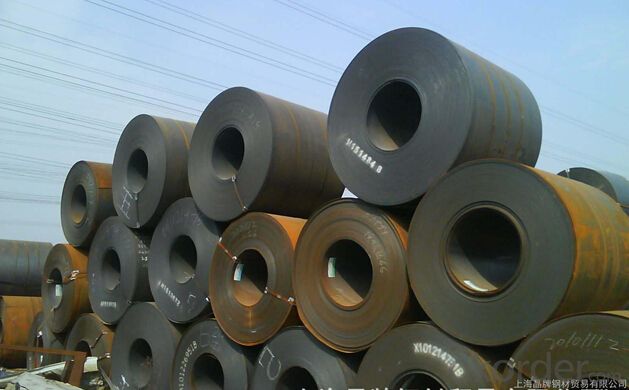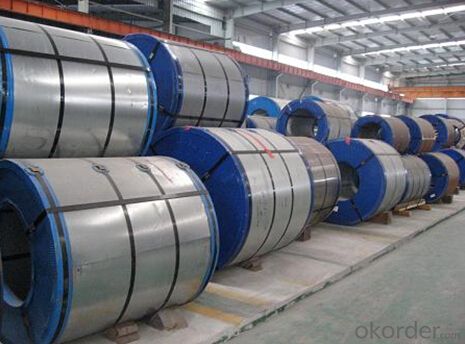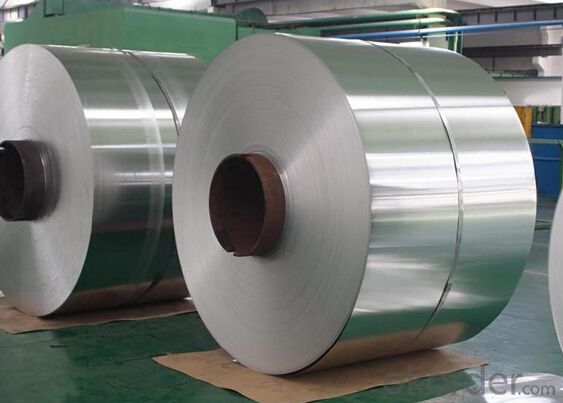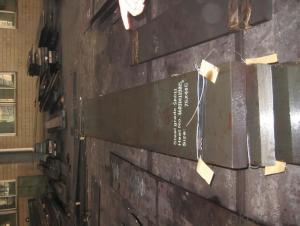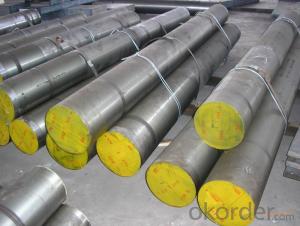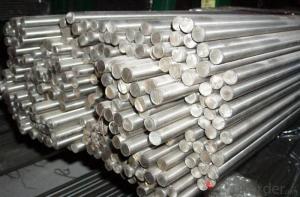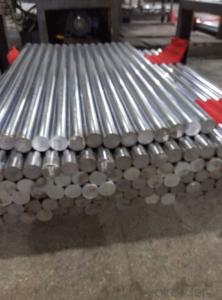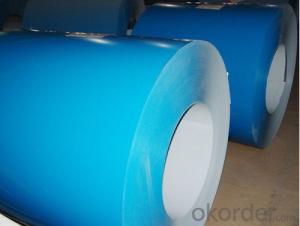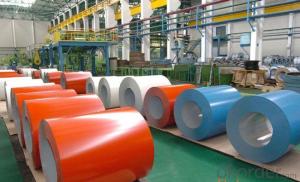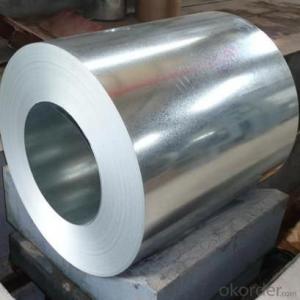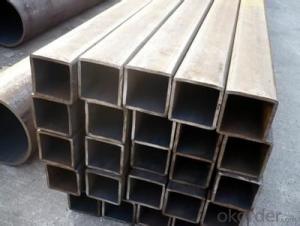Cheaper Price HR Steel Coil S235JR_Strips with High Quality
- Loading Port:
- Tianjin
- Payment Terms:
- TT OR LC
- Min Order Qty:
- 25 m.t.
- Supply Capability:
- 10000 m.t./month
OKorder Service Pledge
OKorder Financial Service
You Might Also Like
Specification
Cheaper Price HR Steel Coil S235JR_Strips with High Quality
Quick Details
Name | Hot Rolled Steel Coil |
Standard | GB/ASTM/SAE/AISI/DIN/JIS/EN/BS |
Surface Treatment: | Black/Peeling/Polished/Machined |
Delivery Condition: | Hot Rolled or Forged/Peeled or Black Surface |
Test | SGS/UT 100% Elements Testing |
Certificate: | ISO/Mill Certificate |
Service: | 24 hours online service / |
more than 20 years trading and manufacture | |
Quality Assurance: | the third party inspection, such as SGS, BV, TUV…etc. is acceptable |
Packaging Details: | Seaworthy Packaging or as per customer's packing instruction |
Specification
Standard | AISI, ASTM, BS, DIN, GB, JIS |
Grade | Q235B Q345B SS400 ST37 ST52 ASTM A283 GR.50 GR65,X70 ,S235JR ,S355JR ,A36 NM360 NM400 NM450 NM500 and so on |
Thickness | 1.5-400mm |
Brand Name | WISCO ,Tisco ,Hebei mill ,Shandong mill |
Model Number | Q235B Q345B SS400 ST37 ST52 ASTM A283 GR.50 GR65,X70 ,S235JR ,S355JR ,A36 NM360 NM400 NM450 NM500 and so on |
Type | Steel Plate/coil ,hot rolled steel plate/coil ,heavy plate ,hot plate ,hot rolled plate ,plate for sturcutual steel |
Technique | Hot Rolled |
Surface Treatment | in quenched an Q235B Q345B SS400 ST37 ST52 ASTM A283 GR.50 GR65,X70 ,S235JR ,S355JR ,A36 NM360 NM400 NM450 NM500 and so on d tempered deliverd condition |
Application | construction machine/ Buildings, Bridges, and cars and so on |
Special Use | High-strength Steel Plate/abrasion steel/wear resistant steel/anti-corrosion steel plate/hot rolled steel coils |
Width | 600-4300MM |
Length | 3000-12000MM up |
color | gray or red or mill |
Company Information
CNBM International Corporation is the most import and export platform of CNBM group(China National Building Material Group Corporation) ,which is a state-owned enterprise, ranked in 270th of Fortune Global 500 in 2015.
With its advantages, CNBM International are mainly concentrate on Cement, Glass, Iron and Steel, Ceramics industries and devotes herself for supplying high quality series of refractories as well as technical consultancies and logistics solution.
After-sale service | l CNBM provides the services and support you need for every step of our cooperation. We’re the business partners you can trust; you can relax and get on with doing business. |
l For any problem, please kindly contact us at any your convenient time, we’ll reply you in our first priority within 24 hours | |
Advantages | Industry experience over 20 years. |
Shipment of goods -More than 70 countries worldwide. | |
The most convenient transport and prompt delivery. | |
Competitive price with best service. | |
High technical production line with top quality products. | |
High reputation based on best quality products. |
Product Show
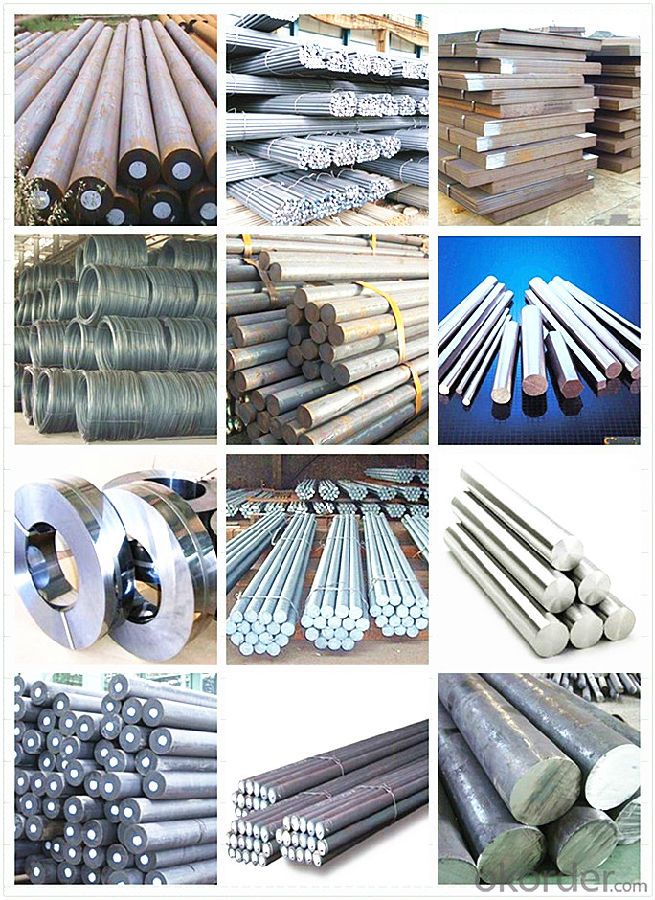
FAQ
Are you a trading company or manufacturer? | Manufacturer |
What’s the MOQ? | 3 metric ton |
What’s your delivery time? | 15-35 days after downpayment received |
Do you Accept OEM service? | Yes |
what’s your delivery terms? | FOB/CFR/CIF |
What's the Payment Terms? | 30% as deposit,70% before shipment by T/T |
Western Union acceptable for small amount. | |
L/C acceptable for large amount. | |
Scrow ,Paybal,Alipay are also ok | |
Why choose us? | Chose happens because of quality, then price, We can give you both. |
Additionally, we can also offer professional products inquiry, products knowledge train (for agents), smooth goods delivery, excellent customer solution proposals. | |
What's your available port of Shipment? | Main Port, China |
What’s your featured services? | Our service formula: good quality+ good price+ good service=customer's trust |
Where are your Market? | Covering more than 160 countries in the world |
- Q: Can special steel be used in the sporting goods manufacturing industry?
- Yes, special steel can be used in the sporting goods manufacturing industry. Special steel alloys offer superior strength, durability, and corrosion resistance, which are crucial qualities for manufacturing various sporting goods such as golf clubs, bike frames, tennis rackets, and baseball bats. These alloys can be tailored to meet specific requirements, ensuring high performance and longevity in sports equipment.
- Q: How does special steel contribute to the marine machinery industry?
- Special steel contributes to the marine machinery industry by offering high strength, corrosion resistance, and excellent mechanical properties. This enables the construction of durable and reliable components such as propeller shafts, rudder stocks, and engine parts that can withstand harsh marine environments. The use of special steel enhances the performance and longevity of marine machinery, ensuring efficient and safe operations at sea.
- Q: What are the main applications of special steel in the power generation equipment?
- Special steel is widely used in power generation equipment due to its exceptional properties such as high strength, corrosion resistance, and heat resistance. It finds applications in various components of power generation equipment, including turbine blades, boiler tubes, heat exchangers, and pressure vessels. These components need to withstand extreme conditions such as high temperatures, pressures, and corrosive environments. Special steel ensures the durability and reliability of power generation equipment, ultimately enhancing the efficiency and performance of power plants.
- Q: What are the main characteristics of corrosion-resistant castings?
- The main characteristics of corrosion-resistant castings include the ability to withstand exposure to corrosive environments without degradation or rusting, high resistance to chemical attack, excellent durability, and long-lasting performance. These castings are typically made from materials such as stainless steel, nickel-based alloys, or other corrosion-resistant alloys, which provide enhanced resistance against oxidation, pitting, and crevice corrosion. Additionally, corrosion-resistant castings often possess good mechanical properties, including high strength and hardness, making them suitable for applications in industries such as marine, oil and gas, chemical processing, and wastewater treatment.
- Q: How is special steel used in the packaging industry?
- Special steel is used in the packaging industry to create durable, corrosion-resistant, and high-strength packaging materials. It is commonly used for manufacturing metal cans, drums, containers, and closures, ensuring the safe storage and transportation of various products, including food, chemicals, and hazardous materials. The unique properties of special steel make it an ideal choice for packaging applications as it enhances the strength, longevity, and protection of the packaging, ultimately ensuring the quality and integrity of the goods being packaged.
- Q: What are the factors that affect the machinability of special steel?
- The factors that affect the machinability of special steel include its chemical composition, microstructure, hardness, and the presence of impurities or additives. Additionally, the cutting conditions and tool materials used during machining operations also play a significant role in determining the machinability of special steel.
- Q: How does special steel contribute to the manufacturing of automotive engine components?
- Special steel plays a crucial role in the manufacturing of automotive engine components by providing enhanced strength, durability, and performance. Due to its unique properties, special steel is used in various critical engine parts, such as crankshafts, camshafts, connecting rods, valve springs, and cylinder heads. One of the primary benefits of special steel in automotive engine components is its exceptional strength. Engine parts made from special steel can withstand high stress, heavy loads, and extreme temperatures without deformation or failure. This strength ensures that the engine operates efficiently and reliably, even under demanding conditions. Moreover, special steel offers superior durability, which is essential for the longevity and performance of engine components. Special steel's resistance to wear, corrosion, and fatigue ensures that the engine parts maintain their functionality over an extended period. This durability translates into increased lifespan and reduced maintenance requirements for the engine, ultimately leading to higher customer satisfaction and lower costs for vehicle owners. The use of special steel in automotive engine components also contributes to improved performance. Special steel allows for the creation of lightweight components, reducing the overall weight of the engine and improving fuel efficiency. Additionally, the high precision and dimensional accuracy achievable with special steel manufacturing processes result in better engine performance, reduced friction, and improved power output. Furthermore, special steel offers excellent machinability, which simplifies the manufacturing process of engine components. Its ability to be easily formed, cut, and shaped enables the production of complex designs and intricate features, leading to enhanced efficiency and performance in the final product. In summary, special steel is vital in the manufacturing of automotive engine components due to its exceptional strength, durability, and performance. Its usage results in engines that are more reliable, efficient, and long-lasting, ultimately contributing to the overall quality and satisfaction of vehicles.
- Q: What are the advantages of using special steel in specific applications?
- There are several advantages of using special steel in specific applications. Firstly, special steel offers enhanced strength and durability compared to regular steel. It has higher tensile strength and better resistance to wear and tear, making it ideal for applications where high strength is required, such as in construction, automotive, and aerospace industries. This ensures that the components made from special steel can withstand heavy loads, extreme temperatures, and harsh operating conditions without deformation or failure. Secondly, special steel has excellent corrosion resistance properties. It can resist the effects of moisture, chemicals, and other corrosive elements, making it suitable for applications in marine environments, chemical processing plants, and offshore structures. Special steel can maintain its integrity and structural stability even when exposed to aggressive substances, thereby extending the lifespan of the equipment and reducing maintenance costs. Another advantage of using special steel is its versatility. It can be easily customized and tailored to meet specific requirements of different applications. Special steel can be engineered to have specific mechanical properties, such as hardness, toughness, or flexibility, depending on the desired application. This allows for greater adaptability and enables designers and engineers to create components that are optimized for their intended use. Furthermore, special steel often exhibits excellent heat resistance capabilities. It can withstand high temperatures without losing its mechanical properties, making it suitable for applications involving extreme heat, such as in the manufacturing of industrial furnaces, turbines, and engines. This heat resistance also allows the steel to retain its strength and shape, minimizing the risk of deformation or failure under elevated temperatures. Lastly, special steel offers superior machinability and weldability. It can be easily formed, cut, and welded into complex shapes and structures, allowing for efficient manufacturing processes and reducing production costs. Special steel's machinability also ensures accurate and precise fabrication, resulting in high-quality components that meet strict industry standards. In conclusion, the advantages of using special steel in specific applications include enhanced strength, durability, corrosion resistance, versatility, heat resistance, and excellent machinability. These properties make special steel a preferred choice for various industries, where reliability, performance, and longevity are paramount.
- Q: What are the common heat treatment methods used for special steel?
- Special steel can undergo various heat treatment methods to enhance its mechanical properties and performance. Some commonly used techniques include: 1. Annealing: By heating the steel to a specific temperature and gradually cooling it, internal stresses are relieved and a refined microstructure is formed. This process improves the steel's machinability and ductility. 2. Normalizing: The steel is heated above its critical point and then cooled in still air. This method refines the grain structure, enhances toughness, and improves strength. 3. Quenching: Rapid cooling is achieved by immersing the steel in a quenching medium like water, oil, or polymer. It increases hardness and strength by forming a hard martensitic structure. However, quenching may introduce internal stresses and decrease toughness, so tempering is often performed afterwards. 4. Tempering: Quenched steel is reheated to a specific temperature and gradually cooled. This relieves internal stresses, reduces hardness, and improves toughness and ductility. Tempering also enhances resistance to brittle fracture. 5. Austempering: Steel is quenched to a temperature slightly above its martensitic transformation range, followed by holding it at this temperature until austenite transforms into bainite. This unique microstructure offers a combination of high strength and good toughness. 6. Martempering: Similar to austempering, but the steel is quenched just below its martensitic transformation range and held at that temperature until transformation is complete. Martempering produces a microstructure with improved strength and toughness compared to conventional quenching. These heat treatment methods are widely used to tailor special steel properties according to specific applications and requirements. The choice of method depends on factors such as desired mechanical properties, steel composition, and the intended use of the final product.
- Q: What are the different methods of improving the machinability of special steel?
- There are several methods that can be employed to improve the machinability of special steel. These methods include: 1. Alloying: By introducing certain alloying elements, such as sulfur, selenium, lead, or bismuth, into the steel composition, the machinability can be enhanced. These elements act as lubricants during machining, reducing friction and cutting forces. 2. Heat treatment: Heat treatment processes like annealing, normalizing, or stress relieving can help improve the machinability of special steel. These processes refine the microstructure, reduce hardness, and increase ductility, making the material easier to machine. 3. Microstructural modifications: Modifying the microstructure of special steel through processes like grain refinement or controlled precipitation of carbides can enhance machinability. Fine-grained steels are generally easier to machine due to reduced cutting forces. 4. Surface coatings: Applying specialized coatings, such as titanium nitride (TiN) or diamond-like carbon (DLC), on the surface of special steel can reduce friction, improve tool life, and enhance chip flow during machining. 5. Tool selection and optimization: Choosing appropriate cutting tools with specific geometries, coatings, and cutting parameters can significantly improve machinability. Optimal tool selection ensures efficient chip evacuation, reduces heat generation, and minimizes tool wear. 6. Machining parameters optimization: Adjusting machining parameters like cutting speed, feed rate, and depth of cut can have a significant impact on machinability. Fine-tuning these parameters can help reduce tool wear, control chip formation, and achieve better surface finish. 7. Lubrication and cooling: Proper lubrication and cooling methods, such as using cutting fluids or coolants, can enhance machinability by reducing friction and heat generation during machining. This helps prolong tool life and minimize workpiece deformation. It is important to note that the specific method or combination of methods used to improve machinability will depend on the type of special steel and the desired machining outcome.
Send your message to us
Cheaper Price HR Steel Coil S235JR_Strips with High Quality
- Loading Port:
- Tianjin
- Payment Terms:
- TT OR LC
- Min Order Qty:
- 25 m.t.
- Supply Capability:
- 10000 m.t./month
OKorder Service Pledge
OKorder Financial Service
Similar products
Hot products
Hot Searches
Related keywords
